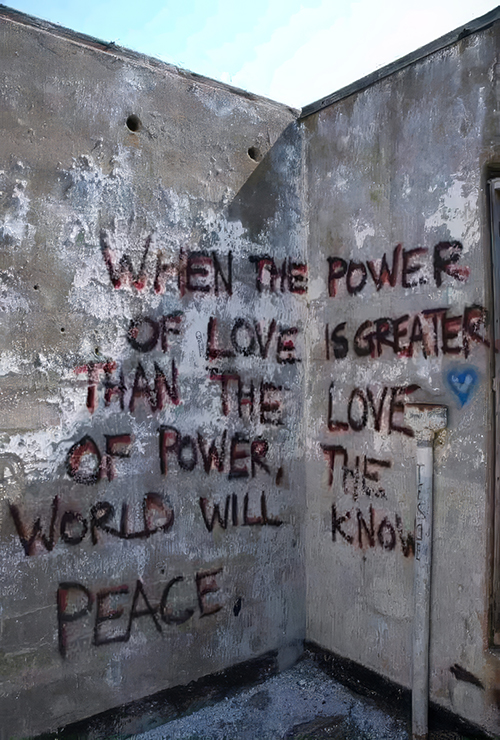
The painting is a somewhat unfamiliar image of the Ascension.
And that is why I have chosen it; it allows me/us to consider this feast afresh.
The painting is by the English artist, Peter Rogers (1933- ). The painting is oil on board and belongs in the Methodist Modern Art Collection.
In the centre of the picture Jesus ascends in a whitish-gold cloud, his body already off the ground, arms raised upwards, and his head thrust back, almost horizontally, in profile, in a style reminiscent of William Blake.
On the left, the two figurees clad in white are standing in the embrace of a deep-red flame that descends from the heavens and curves beneath them, while on the right a group of disciples, undifferentiated except perhaps for Mary in a brown robe, gaze upwards as Jesus is lost to view within the cloud and ascends to heaven.
This all takes place against a black and inky background with a faint glow on the horizon.
When first viewing this painting I sensed within myself the comment, “this artist has not got it right!”
Then the question arose inside me, “is getting it right impeding my hearing and then responding to the Word?”
Then, worse still, was the realisation that “getting it right” was the entire content of the conflict between Jesus and the Jewish authorities.
“Don’t pick corn on the Sabbath” (Mt. 12: 1 – 8)
“See he eats with tax collectors’ and sinners” (Mk. 2: 15 – 17)
“Is it against the Law to heal on the Sabbath or not?” (Mk 3: 1 – 6)
Then again, looking closely at the picture one becomes aware that the figures clad in white are looking out, while the other group are looking up.
The group dressed in white appeared to be enveloped in the flame of Pentecost!
Is “up” or “out” the better posture for today’s ‘community of disciples of the Lord’? (Redemptor Hominis No.21, 1979)



